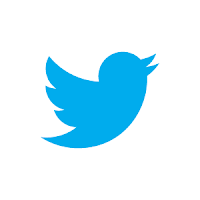“Twitter is unspeakably irritating. Twitter stands for everything I oppose,” says Jonathan Franzen, as quoted in a 2012 Guardian article. “It’s hard to cite facts or create an argument in 140 characters … It’s like if Kafka had decided to make a video semaphoring The Metamorphosis. Or it’s like writing a novel without the letter ‘P’… It’s the ultimate irresponsible medium. People I care about are readers … particularly serious readers and writers, these are my people. And we do not like to yak about ourselves.”
That’s one view–and perhaps it’s your view. But as we all know, many authors–from Neil Gaiman to Margaret Atwood to Susan Orlean–are using Twitter enthusiastically and effectively. In this modern age, in which the author is more responsible than ever for cultivating his or her own audience, do we risk getting left behind?
Next Thursday, I’ll be running interviews with Eowyn Ivey, Don Rearden, and Lorena Knapp on their uses of, and attitudes about, Twitter. The following week, I’ll be including some basic how-tos.
In the meantime, what are your thoughts on Twitter, and even more important, if you’re on the fence or on the side of dipping your toe into the hashtag pool, what are you trying to understand first? I’ll do my best to get you the answers you need to make micro-blogging more effective for you, as an Alaska writer or reader.
Share your questions and comments here.


I used to feel the exact same sentiment as described in the beginning of this post, but I've moderated through the years. I think people who merely say things like, "I feel lazy today" should have their accounts banned, but for business, it can be helpful. I subscribe to a few Twitter feeds, simply to get quick updates on things I'm concerned with. Say a company I deal with has a software update, they could Tweet something to the effect of, "New update just released. Read this blog post for more…" I do see that as beneficial.
It is essential to understand and master Twitter and similar media. The reason is that when a 21st century writer posts something online, one is competing with the entire world for attention. A storyteller sitting around a stone-age campfire has a captive audience with few other options. Modern internet users have to carefully budget their time, and do not have all day to read extended blog articles on the myriad of topics available. Twitter is a powerful tool to introduce readers to one’s art, hooking an audience and enticing them to try more and more detailed works.